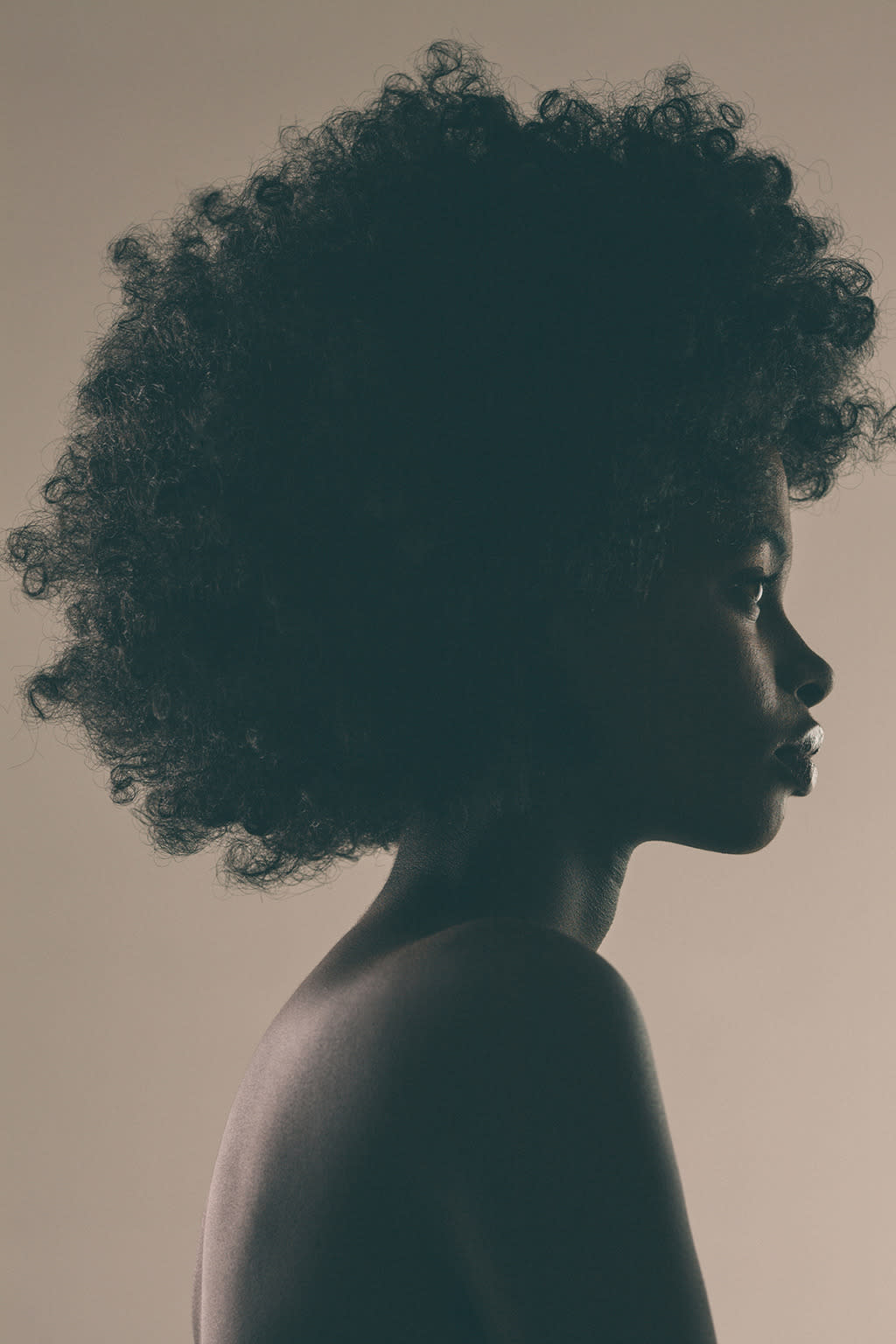Black Women’s Hair Products Are So Toxic, This Organization Is Demanding Change

The price of straighteners and relaxers is steeper than it seems. (Photo: Stocksy)
What’s the price of beauty? For women of color, it’s steep. Prolonged exposure to products designed for black women’s hair is linked to serious health consequences like cancer, respiratory problems, obesity, myriad reproductive issues, and skin erosion. In fact, the organization Black Women for Wellness reveals in a shocking new study that hair care products for black women are some of the most toxic beauty products available.
Following a four-year investigation, the organization has released “Natural Evolutions: One Hair Story.” The report details not only the scary effects of relaxers, straighteners, and dyes, but also the fact that manufacturers are not even required to list noxious ingredients on product labels.
Related: Charges of Racism at Salon Offering ‘Dark Chocolate’ Tans
“There needs to be transparency,” says Willie Duncan, senior program manager for Black Women for Wellness. “We know there are ‘secret’ ingredients that are not listed on consumer products. And manufacturers are not required to list ingredients for salon products at all.” Without that transparency, Duncan says it’s hard to put federal regulations on products — and for proper research to be conducted about the long-term effects of the industry as a whole. As a result, consumers and even stylists are largely unaware of how harmful their hair care products actually are.
This is not a problem that’s easy to solve. The culture of hair styling has deep roots in the history of black culture in the U.S. According to the study, “Black hair culture is interconnected with the conversation around class, gender, race, colorism and colonialism. … [It’s] more than simply big business; it is multilayered, complex. … It connects us to Black women across the globe.”
And brace yourself for this statistic: Black American women spend upwards of 9 billion dollars per year on hair care products — double that of any other ethnicity. That said, many are loath to pay higher prices for safer products. “It feels like we are being punished for wanting healthier options,” said one participant.
Compounding the problem, stylists report that when they swap out their usual products for healthier alternatives, their customers aren’t always pleased. “They’re taking [the chemical] out for a good reason, but then our clients are like, wait a minute, something’s not right,” said one participant.
Related: How to Bleach Your Hair Without Destroying It (Like Kylie Jenner Did)
So what can be done to help make the hair salon a safer place for women of color? Black Women for Wellness is calling for mandatory ingredient lists and federal regulations on cosmetics for this ethnic group — which includes “Africans, African-Americans, Black Americans, Black Caribbeans, and Afro Latinos.” It is also insisting that toxic chemicals — including formaldehyde, ammonia, obesogens, and phthalates — be included on product labels, along with the health hazards they present.
Black Women for Wellness also wants to empower consumers and stylists to seek out healthier products, even if they have to pay more and travel longer distances to get them. Duncan believes these pain points are worth it and even encourages stylists to inform their clients about the adverse effects of the products they use.
Duncan also warns against falling for “green labeling,” where manufacturers slap “organic” labels onto their products without listing the actual ingredients. “Because they’re not regulated by the government, they’re not required to list ingredients, so they can get away with this,” she says.
Making your own, all-natural hair care products by searching the Internet for homemade recipes is another approach Duncan recommends. If you’re in the L.A. area, she invites you to come to Black Women for Wellness’s headquarters to learn about its D.I.Y. beauty-product seminars. Plus, the organization intends to make your shopping trips easier by soon featuring a downloadable “purse card” on its website listing all of the major harmful ingredients to avoid. (Until then, you can email teni@bwwla.com to have a purse card sent to you.)
Other solutions? Thought leaders interviewed for the report suggested educational seminars, engaging directly with beauty shops, and encouraging women who have suffered major consequences from exposure to toxins to share their personal stories.
Finally, a greater acceptance of black women’s natural hair is the key to ending all of these problems. “All hair is good; there is no bad hair,” said one hair care professional interviewed for the study. “Good hair is growing hair. Good hair is when it [doesn’t] hurt.”
Read This Next: Could Your Beauty Routine Be Making You Sick?
Let’s keep in touch! Follow Yahoo Beauty on Facebook, Twitter, Instagram, and Pinterest.

